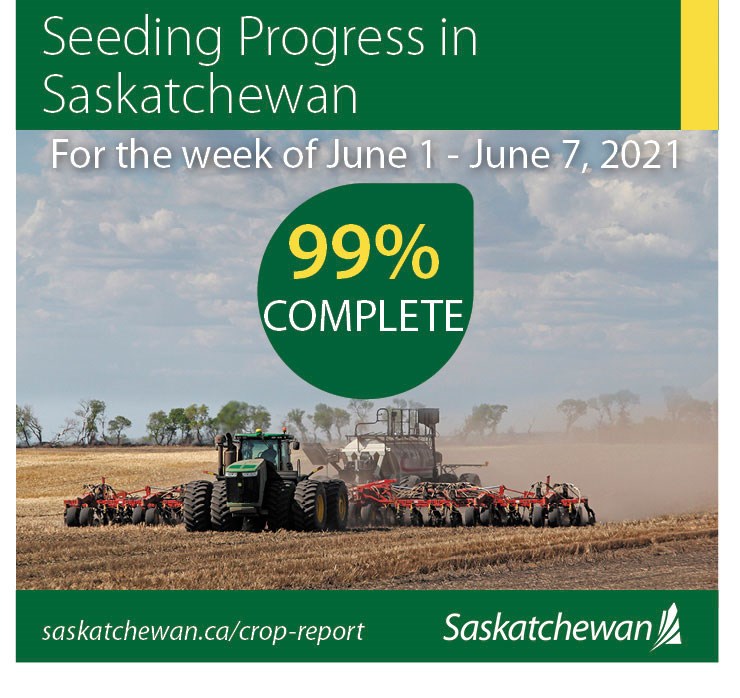Seeding is virtually complete throughout the province, with 99 per cent of the crop seeded, with a few fields being seeded for green feed and silage. This is ahead of the five-year average (2016-20) of 97 per cent.
Some areas of the northern regions of the province received good amounts of rain due to a thunderstorm on the weekend; unfortunately, it brought some hail as well. The Cando area reported 40 mm of rain, the Kinistino area 37 mm, the Rosthern area 32 mm, the Sonningdale area 27 mm, the Duck Lake and Spruce Home areas 23 mm. Parts of the southern half of the province saw small localized showers with amounts ranging from two mm to 12 mm.
Even with the rainfall over the weekend, the topsoil moisture conditions in Saskatchewan have deteriorated. Higher amounts of rain in the northern regions have slightly improved moisture conditions in the area, but there are more fields rated as having short or very short moisture in the remaining regions of the province this week.
Cropland topsoil moisture is rated as zero per cent surplus, 56 per cent adequate, 40 per cent short and four per cent very short. Hay and pasture land topsoil moisture is rated as zero per cent surplus, 35 per cent adequate, 53 per cent short and 12 per cent very short. Dry conditions continue to delay pasture and hay land growth and have delayed emergence of smaller seeded crops, such as canola and flax.
Eighteen per cent of the fall cereal crops are reported being in the shot blade stage and 18 per cent are heading, while 51 per cent of the spring cereals are emerging and 38 per cent are tillering. Forty-two per cent of canola is emerging and 40 per cent is in the seedling stage, along with 30 per cent of flax being in the seedling stage. Forty-eight per cent of pulse crops are emerging and 45 per cent are in the vegetative stage.
The majority of crop damage this week was due to strong winds, dry soil conditions and insects (including flea beetles and cutworms). Some producers are reseeding due to flea beetle and cutworm damage.
Producers have been busy spraying for weed and insect control, hauling grain and moving cattle to pasture.
A complete, printable version of the Crop Report is available online at https://www.saskatchewan.ca/crop-report.
Follow the 2021 Crop Report on Twitter at @SKAgriculture.




